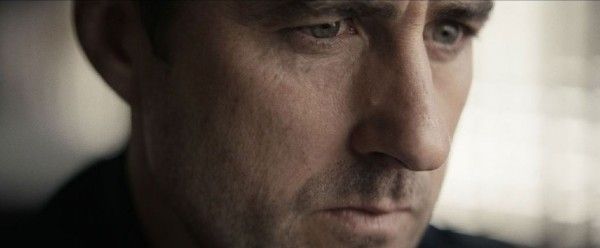Admittedly I’ve done my fair share of complaining about the overabundance of dismal, depressing movies at this year’s festival, but Reed Morano’s directorial debut, Meadowland, is one of few that actually justifies experiencing someone else’s grief and pain for 95 minutes.
While making a quick pit stop at a gas station during a drive up to Ithaca, Sarah (Olivia Wilde) and Phil’s (Luke Wilson) young son Jessie goes missing. A year later, he’s still nowhere to be found and both struggle to cope with the loss. Phil does his best to move on by attending a support group, but Sarah turns to lithium and a delusional quest for answers.
Make way for Morano and Wilde. Even though screenwriter Chris Rossi delivers a somewhat familiar scenario with a handful of questionable plot points, Morano and Wilde manage to take almost every bit of it and make it painfully genuine and honest. Wilde completely gives herself over to this character and situation, and then Morano knows exactly how to capture the devastatingly wholehearted performance to give it a mesmerizing quality.
Even though we only see Sarah interact with her son for a matter of minutes before he’s gone, the movie cuts to black and fast forwards, Wilde has absolutely no trouble conveying exactly what he means to her, which is quite the achievement considering that gas station scene is a bit misleading. For anyone who walks into Meadowland knowing nothing about the film, Sarah and Phil’s behavior during that opening gives the impression that the pair doesn’t know much about parenting, perhaps having just adopted the kid. Clearly that’s not the case and fortunately as soon as we hit the “year later” portion of the film, Wilde and Wilson’s performances are impassioned and focused enough to steer things in the right direction.
Wilson does an impeccable job selling Phil as the more stable of the two, but without ever undermining his own misguided and inappropriate coping mechanisms. He can’t come close to stealing the spotlight from Wilde, but by showing Phil’s drastically different reaction to their son’s disappearance paired with his genuine desperation to have Sarah snap out of it, Wilson winds up adding a significant amount of tension to the situation.
Meadowland is about those who are left behind, not a flashy mission to track down the missing child, but Rossi does weave in the possibility that Jessie is still out there and while that question never becomes the focal point of the movie, it does give it a good deal of momentum. Sarah doesn’t go out looking for the culprit. She simply states, “Jessie is fine. I can feel it,” and she does so with such devout insistence that it’s impossible not to believe it. Phil urges her to accept what’s happened and move on, but she’s still holding on to some semblance of hope and, in turn, so will the viewer.
Wilde offers up a remarkable amount of access to Sarah through her performance alone, but Morano takes it a major step further by using the visuals to truly envelop you in her world. Morano is an accomplished cinematographer and it shows. Not only did she direct Meadowland, but she’s the DP on the film too and the choice to pull double duty serves the material well, creating a seamless connection between the performances and visuals, especially during Sarah’s late night walks through Times Square and this one unforgettable conversation between Sarah and Phil’s brother, Tim (Giovanni Ribisi).
Meadowland has one too many supporting characters, but some do manage to make an impression, namely Ribisi and Ty Simpkins. Ribisi plays Phil’s screw-up brother who crashes with him and Sarah until he can get the resources to move elsewhere. He’s introduced as a nuisance who wants to support them as best he can, but never says or does the right thing to actually make a difference until he exposes how much Sarah really does need help. As for Simpkins, his character is more of a prop than a full-blown person, but his relationship with Wilde is one of the most intriguing elements of the film. Simpkins plays Adam, a young boy with Aspergers who attends the school where Sarah teaches. No one understands him - students, teachers or his own foster parents - so Sarah takes it upon herself to befriend him. There’s something noble about her efforts that suggest the connection could help both characters, but it’s also abundantly clear that they’re wildly inappropriate and destructive.
Rossi’s script certainly could have benefited from more structure, but Meadowland is still a powerful and especially engaging depiction of grief and sorrow. I can’t say I walked out in the best spirits, but, unlike most of the gloomy dramas I’ve seen lately, this is one I wasn’t eager to shake right off and genuinely wanted to consider well after it was over.
Grade: B
Click here for all of our TFF 2015 coverage or browse the links below to check out my other reviews:


